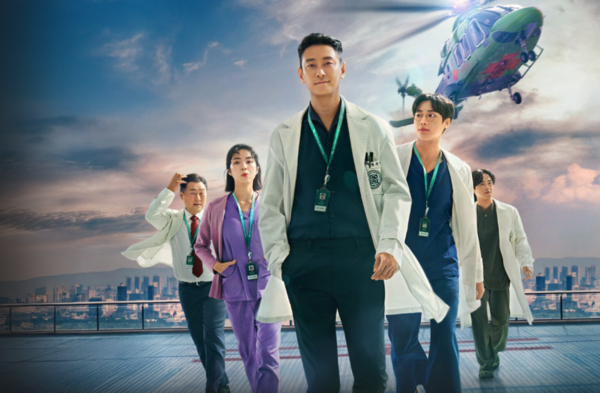As the Netflix series “The Trauma Code: Heros on Call” gains immense popularity, interest in trauma surgeons is also growing.
However, the system for training trauma surgeons is in danger of collapse.

The Severe Trauma Specialist Training Center at Korea University Guro Hospital is the only training center in Korea that trains trauma surgeons like Baek Kang-hyuk, the drama's protagonist. However, it received a “suspension notice” last year-end when government funding was cut off.
Fortunately, the tide turned recently when the drama's global success drew attention to the center, and interest in severe trauma centers grew. The center was narrowly saved from closure when the Seoul Metropolitan Government decided to provide 500 million won ($343,950) in disaster management funds.
In 2014, the Ministry of Health and Welfare designated the trauma surgeon training center in Seoul as a center for intensive training of trauma surgeons and has provided 900 million won annually.
More than 20 trauma surgeons have graduated from the center so far. The ministry had planned a budget to support the training center this year, but it was cut during deliberations at the Ministry of Economy and Finance.
Given the importance of training trauma specialists, the National Assembly's Health and Welfare Committee revived the budget. However, at the end of the year, the budget was cut entirely as there was no discussion of increasing it, leading to the project's suspension.
The Seoul Metropolitan Government stepped in to support the program, but it is only a stopgap measure. Without a fundamental solution, trauma surgeon training centers with specialized training programs could disappear forever.
Due to the drama's popularity, the crisis was averted this year, but no one knows if it will be as lucky next year. The bigger problem is that this medical training system should not operate on a “lucky to stay, unlucky to go” basis. This is little different from leaving the treatment of severe trauma patients in a life-or-death situation to chance.
Dr. Oh Jong-keon, director of the training center for severe trauma specialists at Korea University Guro Hospital, says he used to be “nervous” that the government would cut off funding and stop operating the center or that there would be no trainees. He hopes his interest in the training center “is not a one-off issue.”
It is time for the government and the National Assembly to consider fundamental measures to ensure that institutions that train trauma surgeons can continue to produce high-quality personnel with stable support rather than remaining a “lucky dip” structure.
The rival political parties, engaged in a buck-passing game over the 900 million won for the project cut during the 2025 government budget process, should stop playing politics and work together to maintain a stable system for training human resources -- before the center is pushed to the brink again.
Related articles
- Trauma specialist reflects on Netflix drama 'The Trauma Code' amid budget crisis
- Netflix drama ‘The Trauma Code’ sparks financial CPR for Korea’s trauma training center
- Severe trauma fatality rate dropped while disability rate rose over 8 years: KDCA
- Rehabilitation decides severely ill patients’ quality of life, even reducing mortality
- [Interview] Doctor-turned-author of ‘The Trauma Code’ laments Korea’s collapsing trauma system
- [Interview] Netflix drama ‘The Trauma Code’ is fiction. The real crisis in Korea’s ERs is worse.
- Ewha Womans University Medical Center stars as key filming location for Netflix’s ‘The Trauma Code’
- Emergency medicine doctors’ health in crisis amid ongoing government-medical conflict
- [Reporter's Notebook] Regional trauma centers remain mere ‘political symbols'

